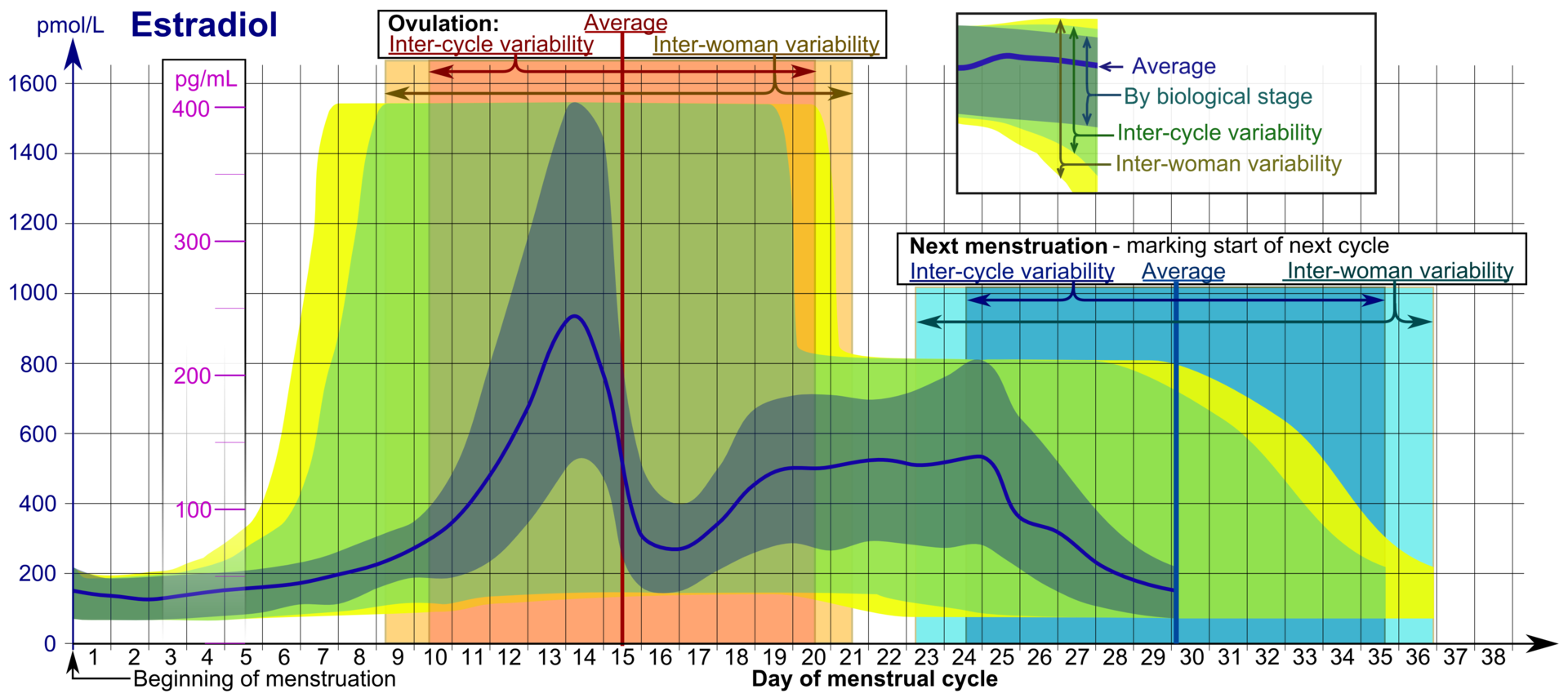Medical Marijuana for Women’s Health
Written by Chris Weatherall on Sep 24, 2018Slowly, medical marijuana is being more openly accepted by the public as well as by physicians and medical health professionals. Medical marijuana is being utilized in medical and pharmacotherapy studies than at any other time in the history of modern medicine.
Medical marijuana studies have shown that marijuana and its active ingredients – primarily CBD and THC – can offer a wide range of benefits in treating the main and ancillary symptoms of chronic and debilitating diseases. In particular, marijuana has found to help women in particular with a myriad of different illnesses. So what diseases and ailments may cannabis help women with?
Related Reading: Medical Marijuana Resources and Education
Medical Marijuana for Pre-Menstrual Syndrome (PMS)
Women using marijuana to deal with the symptoms of PMS is not a new fad at all. Before modern medicine had given women new ways of dealing with premenstrual syndrome, many women used natural remedies for PMS including cannabis extracts.
The endocannabinoid system (a natural system of receptors that are found throughout the body) undergoes changes during the oestrus and dioestrus phases of menstruation. As demonstrated by the Pagano Study, cannabinoid receptors CB1 and CB2 can be activated in selective inhibition of myometrial contractibility.
What does that mean? In laymen’s terms, it means that premenstrual cramps can be inhibited (lessened or stopped) with the ingestion of cannabinoids.

Medical Marijuana for Mood Swings in Women
It is normal for a woman’s mood to change depending on the stage of her menstrual cycle, and with the fluctuation of hormone levels that occurs throughout the cycle. However, if the fluctuations are extreme, and a woman is seeing her mood switch rapidly or violently from positive mood to negative mood, this is a sign of an unbalance.
Medical marijuana’s ability to balance hormones during menstruation is just one of the positive effects MMJ can offer. THC, the chemical in medical marijuana most associated with the psychoactive effects and the “high” caused by ingesting marijuana, can also help to calm the “cry-rage” feelings that women get.
Medical Marijuana for Endometriosis
Affecting an estimated 11 percent or more of American women between the ages of 15 and 44 years old, endometriosis is a disease characterized by the growth of uterine tissue outside of the uterus itself – either on the fallopian tubes, ovaries, on the outside of the uterus or on surrounding tissue.

Pain is the most common symptom of endometriosis, followed by bleeding/spotting between periods, infertility, and digestive problems. Medical marijuana has been shown to aid in digestive problems as well as chronic pain and inflammation issues.
Additionally, studies have found that women with endometriosis were CB1 deficient***. That means that the woman’s natural endocannabinoid system is not functioning sufficiently – though it can be artificially stimulated with the ingestion of cannabinoids.
The study, “Endocannabinoid Involvement in Endometriosis,” took the correlation of the endocannabinoid system to endometriosis a step further, admitting that the endocannabinoid system is inherently involved in uterine function, and theorizing that the endocannabinoid system in women could have developed as a natural response to pain and symptoms of uterine anomalies and diseases affecting the uterus, such as endometriosis.
Medical Marijuana for Women’s Sexual Health Issues
More women are using medical marijuana than ever for a range of women’s sexual health issues. There are a number of women’s sexual health issues that can develop over time, including low libido, painful sex, inability to achieve orgasm, and other female sexual dysfunction issues.
Related Reading: How to Get Your Arizona Medical Marijuana Card
Medical Marijuana as an Aphrodisiac for Women
Yes, cannabis and the compounds within it, can have aphrodisiac properties for men and women. Not only can medical marijuana help with both erectile dysfunction and help to prevent premature ejaculation in men, but women can benefit from medical marijuana’s ability to increase libido and help in cases where penetration is painful for women.
Women Using Medical Marijuana to Help with Pain and Discomfort During Sex
Women who experience pain or discomfort during sex have recently turned toward CBD as a possible way to help alleviate pain and discomfort from penetrative sexual intercourse. CBD has been widely recognized for its anti-inflammatory properties, and lubricants using CBDs have become popular for couples who are looking for ways to make sex more pleasurable and enjoyable.
Where’s the proof? Let’s just say that the studies and tests on this exact subject have not been completed under rigid medical regulations in a controlled environmental study, but you only have to ask the opinions of those that have used medical marijuana for sexual health problems in women.
Medical Marijuana for Female Epilepsy Patients
Men and women develop epilepsy at about the same rates, and epilepsy is not more common in one gender than the other*. However, women are more prone to seizures, side effects, and symptoms of epilepsy due to the greater hormonal fluctuations that occur naturally in their bodies.

Catamenial epilepsy is a type of epilepsy where chronic bouts of recurrent seizures are caused or worsened by increases in hormone levels in a woman during menstruation. Women suffering from catamenial epilepsy may see symptoms worsen during menstruation, caused primarily by increases in estrogen and estradiol.
Medical marijuana may be an option for women suffering from epilepsy to help control symptoms of epilepsy and reduce risk of epileptic and grand mal seizures, especially in times when hormonal spikes increase seizure risk.
How CBD Can Help Treat Epilepsy
As of June 25, 2018, the U.S. Food and Drug Administration (FDA) approved its first ever drug derived from marijuana to treat two rare forms of epilepsy.
This drug, “Epidiolex”, utilizes cannabidiol (CBD), a non-psychoactive chemical found in the Cannabis plant. Studies during the testing phase of Epidiolex yielded the following results:
- A 54% average decrease of seizures was found in test epileptic patients after 12 weeks of treatment with Epidiolex.
- A 63% average decrease of seizures was found in epileptic patients with Dravet Syndrome (DS) over 3 months.
- A 66.7% average decrease of atonic seizures was found in epileptic patients with Lennox-Gastaut Syndrome (LGS).
- Those that were taking the anti-seizure medication Clobazam (Onfi) in conjunction with Epidiolex responded more favorably to the Epidiolex, and overall saw a higher responder rate (decreases of 50% or more in overall seizures).
Studies have shown that CBD has potential as an anticonvulsant, and can prevent neuron damage from epileptic and grand mal seizures.
Medical Marijuana for Women Suffering from Depression
Not only are women twice as likely to be treated for depression than men, but the risk of depression and depressive disorders in women increases as a woman ages**. Depression is most common in women ages 40 to 59, and is often triggered by hormonal fluctuations and symptoms of menopause during a woman’s “change.”
In cases where the root cause of depression is hormonal imbalance, medical marijuana may offer relief by helping to balance out the hormones in the body – particularly decreasing estrogen.
Medical Marijuana for Women with Diabetes
Nearly 12 million women were diagnosed with diabetes in 2017, and an estimated 3.1 million more women with diabetes went undiagnosed in that same year.
Numerous studies have been completed on the benefits of medical marijuana for diabetes sufferers, including the hallmark study by the “American Alliance for Medical Cannabis (AAMC),” which found the following benefits for diabetes sufferers using medical marijuana:
- Marijuana was found to have the power to stabilize blood sugars.
- Cannabis has anti-inflammatory properties, which can directly lessen arterial inflammation and ancillary symptoms – common in patients with diabetes.
- Marijuana has neuro-protective properties, and can reduce inflammation of nerves – therefore reducing neuropathy and neuropathic pain associated with diabetes.
- Cannabis offers anti-spasmodic benefits, reducing muscle spasms and cramps. It can help to reduce gastrointestinal pain and discomfort that diabetes sufferers commonly cite as symptoms.
- Marijuana can act as a vasodilator, opening blood vessels, protecting long-term health of blood vessels, and can improve blood circulation.
- Long-term Marijuana use can aid in the long term lowering of blood pressure. Many of those suffering from diabetes will see arterial and cardiac issues later in life, so this contributes to the overall long-term health of diabetic patients.
- Restless Leg Syndrome, common among diabetic patients, can be relieved by medical marijuana.
Medical Marijuana for Women with Rheumatoid Arthritis
 The Arthritis Foundation estimates that 1.5 million people in the United States have rheumatoid arthritis, and that women are 3 times more likely to be diagnosed with RA than men. An autoimmune disease, RA is caused by inflammation of the joints. This leads to joint pain, swelling, stiffness and loss of joint function.
The Arthritis Foundation estimates that 1.5 million people in the United States have rheumatoid arthritis, and that women are 3 times more likely to be diagnosed with RA than men. An autoimmune disease, RA is caused by inflammation of the joints. This leads to joint pain, swelling, stiffness and loss of joint function.
Studies have found that cannabinoids can offer anti-inflammatory properties in murine collagen-induced arthritis. Further studies have been concluded, testing cannabinoid-based pharmaceutical drugs for the treatment of joint pain and pain associated with rheumatoid arthritis.
Medical Marijuana for Women with Alzheimer’s Disease
The relationship between medical cannabis and Alzheimer’s disease is quite clear, with medical marijuana offering an abundance of benefits for those suffering from Alzheimer’s.
Studies continue to show increasing benefits for Alzheimer’s patients using medical marijuana, including the latest 2018 study that demonstrates that cannabinoids both offer anti-inflammatory properties and can decrease amyloid beta accumulation in nerve cells – two critical points to slowing the progression of Alzheimer’s disease.
The biggest benefit could be if we can find exactly how THC and cannabanoids reduce amyloid plaques in the brain – the sticky protein legions in the brain that cause some of the most debilitating effects of the disease. While medical marijuana that is smoked, ingested or vaped can help to detangle these legions and slow Alzheimer’s progression, scientists are hoping to derive a medication from marijuana that can act more efficiently.
Precautions on Using Medical Marijuana for Women’s Health Issues
Precaution should be taken when considering utilizing or changing any type of medical treatment, whether the treatment is naturopathic, homeopathic, complementary medicine practices, alternative medicine practices, integrative medicine practices, or even standard medical care practices. Be sure to communicate with your doctor any questions you have about medical marijuana for women’s health issues, discontinuing medication to treat existing conditions, or changing treatment types.
Learn More About Getting a Medical Marijuana Card
* O’Connor, S. E., & Zupanc, M. L. (2009). Women and Epilepsy. The Journal of Pediatric Pharmacology and Therapeutics : JPPT, 14(4), 212–220. http://doi.org/10.5863/1551-6776-14.4.212
** Statistics Courtesy of Womenshealth.gov
*** Dmitrieva N, Nagabukuro H, Resuehr D, et al. Endocannabinoid involvement in endometriosis. Pain. 2010;151(3):703-710. doi:10.1016/j.pain.2010.08.037.








